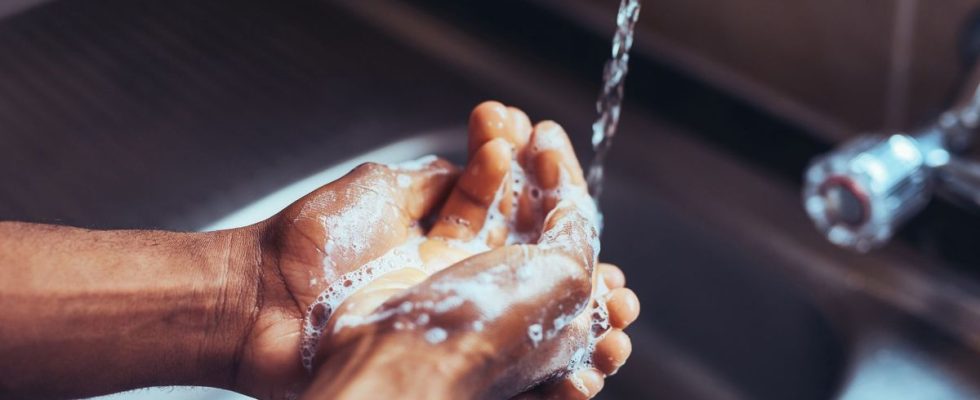Published on
Updated
Reading 2 min.
How often do you wash your hands? And in what situations? These are questions that were asked to a panel of French and Americans as part of World Hand Hygiene Day, which takes place on May 5 at the initiative of the World Health Organization. While this 2024 edition aims to raise public awareness of the importance of hand washing to “stop the spread of dangerous pathogens”, the survey shows that there is still a lot to do for this reflex to take hold ( really) in the habits of the population.
“Wash your hands !”. How many times has this phrase been uttered by parents who are desperate at the idea that their offspring does not (still) adopt this crucial reflex? Before eating, after going to the toilet, when returning home… Hand hygiene must be impeccable “because it constitutes the basis of basic practices, it allows the prevention of infections associated with care and antibiotic resistance and that it reduces the hand-borne transmission of viruses and bacteria”, as explained the Ministry of Health. If this essential reflex is learned from childhood, the Covid-19 pandemic has largely brought it up to date, even making it a pillar of prevention strategies.
Four years after the start of the health crisis, are the French still impeccable in this area? Not so sure, according to a survey produced by Selvitys for NYC.fr and FLASHS, on the occasion of World Hand Hygiene Day. If an overwhelming majority of French people say they wash their hands systematically after going to the toilet (94%) or before cooking (93%), there are already fewer of them who do so before sitting at the table (79%), including 71% 18-24 year olds, when they arrive home (77%), before caring for a baby under 6 months old (76%) or after taking public transport (75%) .
In certain situations, hand washing is not at all integrated into the habits of the French population. This is particularly the case after using a tissue (57% of respondents say they do it systematically), and after shaking the hand of someone not part of the entourage (46%). And we see that some have slackened their efforts since the Covid-19 pandemic. If 39% of French people say they wash their hands more often than at the height of the pandemic, there are still 12% who admit to doing it less frequently.
What about the Americans?
Is hand hygiene taken more seriously across the Atlantic? The authors of this survey had the idea of cross-referencing the responses of the French with those of a panel of Americans, and we realize that the latter are a little more picky in this matter. In almost all situations, more people adopt this reflex: 96% wash their hands after going to the toilet or before cooking, 83% before taking care of a baby, 81% before passing at the table, 78% when they return home or after taking public transport, 76% after blowing their nose, and 69% after shaking hands with another person.
The only exception: shopping. While 69% of French people say they wash their hands after going to the supermarket, this is ‘only’ 68% in the United States. Note also that 60% of American respondents say they wash their hands more often than at the height of the pandemic, compared to only 3% who say they do it less regularly.
*This survey was carried out by Selvitys for NYC.fr and FLASHS, from February 24 to 26, 2024, with a sample of 1,000 Americans and 1,000 French people, representative of the population aged over 18 in both countries.
